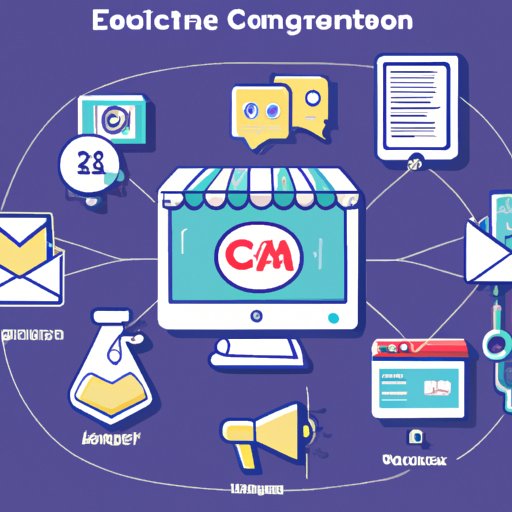Introduction
E-commerce is the buying and selling of goods or services over the internet. It has become an increasingly popular way for businesses to reach customers and grow their businesses. There are many benefits to starting an e-commerce business, including low overhead costs and the ability to reach a global audience. However, there are also many challenges that come with starting an e-commerce business, such as understanding the different platforms available, navigating legal requirements, building a website, and developing a digital marketing strategy.
Exploring Different Platforms
When it comes to setting up an e-commerce business, one of the most important decisions you’ll make is choosing the right platform. There are many different options available, from open source solutions like WordPress and Magento to hosted solutions like Shopify and BigCommerce. It’s important to understand the features and capabilities of each platform before making a decision. Consider factors like cost, scalability, customer support, and customization options when deciding which platform is best for your business.
Legal Requirements
Before you launch your e-commerce business, it’s important to understand the legal requirements associated with operating an online store. Depending on your location, you may need to obtain certain licenses and permits in order to operate legally. Additionally, you’ll need to familiarize yourself with tax laws and regulations, as well as intellectual property protection. Consulting a lawyer or accountant can help ensure that your business is compliant with all applicable laws.
Building a Website
Once you’ve chosen a platform, it’s time to start building your website. This involves selecting a domain name that reflects your brand and designing a website that meets customer needs. You’ll also need to set up payment processing so customers can purchase products or services from your site. Consider hiring a web developer or designer to help you create a professional-looking website that stands out from the competition.
Digital Marketing Strategy
Developing an effective digital marketing strategy is essential for any e-commerce business. This involves creating compelling content that resonates with your target audience, developing a social media presence, and utilizing search engine optimization (SEO) to increase visibility. You should also consider running paid advertising campaigns on platforms like Google Ads and Facebook Ads to drive more traffic to your site.
Conclusion
Starting an e-commerce business can be a daunting task, but with the right resources and knowledge, anyone can create a successful online store. Understanding the different platforms available, navigating legal requirements, building a website, and developing a digital marketing strategy can help ensure that your business is set up for success.
(Note: Is this article not meeting your expectations? Do you have knowledge or insights to share? Unlock new opportunities and expand your reach by joining our authors team. Click Registration to join us and share your expertise with our readers.)
